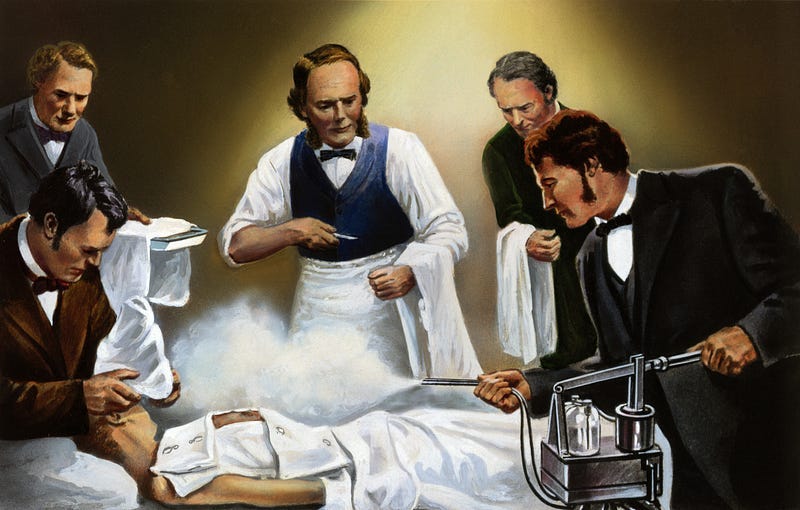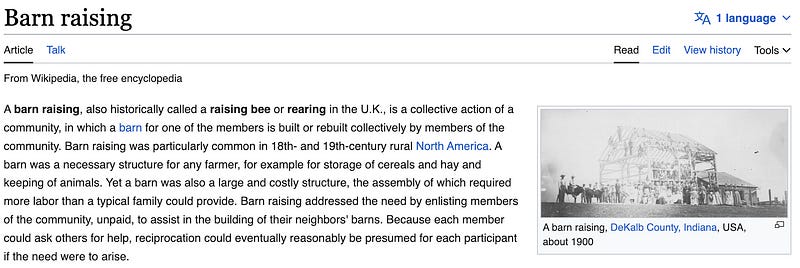An Appeal For Christian AI Builders
Following the recent announcement of a Christian AI tool and the ensuing backlash evident on my Twitter feed over the past few weeks, it’s apparent that, by-and-large, Christians are concerned about the social consequences of AI development.
This really isn’t surprising. Christians are uniquely conservative. The history of the west is Christian history. Conservatism is concerned with preserving traditional values, and the traditional values here that conservatism is concerned with preserving are defined by Christianity.
The world should be explored, and scientific innovations should be encouraged, but goodness isn’t something to be discovered. Progress unbounded by virtue is a euphemism for evil.
Liberalism elevates progress above traditional concepts of virtue, proposing that virtue is an open-ended question that reason and science must prove. Society is subjected to endless experiments in its pursuit.
Christians don’t need the experiments. We already have a standard of goodness. It was given to us by God, and that standard is immutable.
So it’s not surprising that Christians are suspicious of new innovations. Especially technology marketed to replace not just the value of human work, but also the human mind. If we’re building the tower of babel, it would be in our best interest to call off the work.
However, that doesn’t mean that Christians oppose all innovations. Many of history’s greatest scientific minds were Christian. Many scientific innovations have improved society’s well-being, and Christians throughout history have been at the forefront of that.

But AI is an unknown. In an ideal world, massive changes with unknown effects like this would be undertaken carefully over time with ample moderation to control for adverse consequences. Unfortunately, we don’t live in an ideal world, and it’s unlikely the brakes will be applied by anyone anytime soon.
There are hills to die on, and sometimes clasping our arms together and refusing to participate is the best course of action. However, this is not always the case. The Church was historically slow to adopt the internet, and in the meantime, the developers became corporations which became powerful gatekeepers that punish Christian thought in the online public square today.
Instead, I think it’s possible that our best course of action might be to — not necessarily embrace AI — but to build it. We need more Christians developing the technology that society will be bounded by in the future. We need more Christians influencing the discussion on, not just what gets built, but how it’s built and what values get built into its operating rules.
We need Christians building AI precisely because it’s scary. Unlike some, I’m not convinced that what we are dealing with is inherently evil, but I do recognize that is has great potential for evil. I also think it has great potential for good, not by replacing human effort, but by accomplishing work that would otherwise not get done.
In the past, “barn raising” was a communal event. We can imagine the benefits of such a practice for the social fabric of small communities, but we can likewise recognize the benefits the invention of cranes provided for those unable to enlist a communities’ help. The social benefits of barn raising enjoyed by some was not a universal experience.

This isn’t an argument for unbounded scientific pursuit. Gothic horrors like Frankenstein barely scratch the surface of dark worlds that can be imagined due to humanity’s lust for knowledge. However, I don’t believe that closing the rhetorical Pandora’s box is going to stop what’s already been unleashed. So where does that leave us?
In a 2018 appearance on Joe Rogan, Elon Musk issued intense warnings about the development of AI. It should seem contradictory that he’s been at the forefront of AI development for years with Neuralink, AI robots, and his coming rival product to OpenAI (a company he cofounded).
Elon isn’t a Christian, and I don’t have something resembling faith that what he’s building will turn out for the best. But I think I understand why he’s doing it: because he knows that if he doesn’t someone else will. I think the question is, who do we as Christian’s trust most to build with an applied ethic for the common good? Ourselves or the unconverted?
